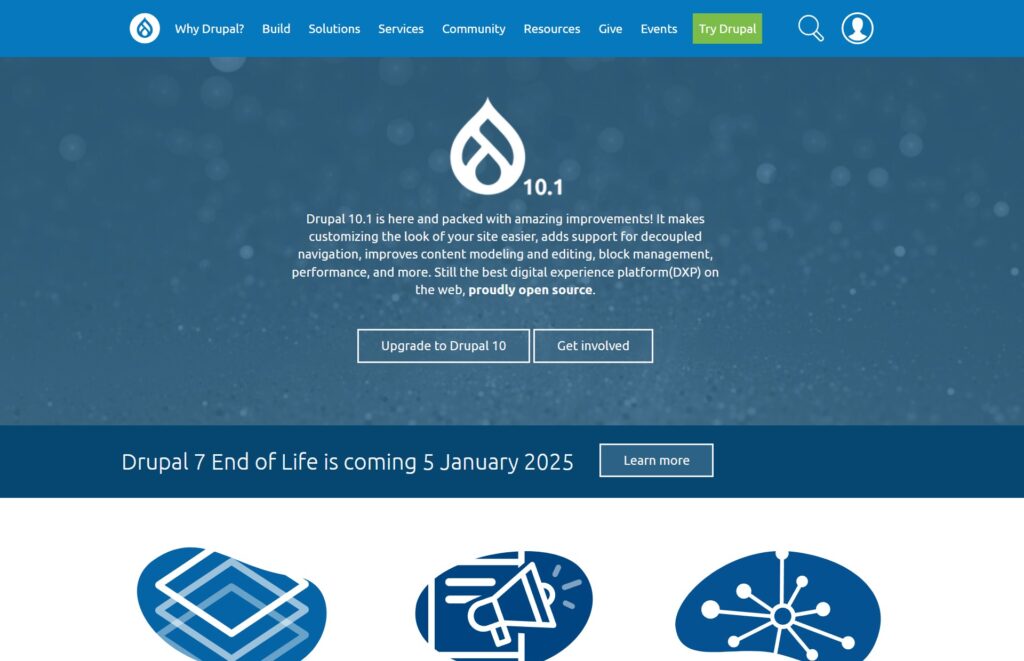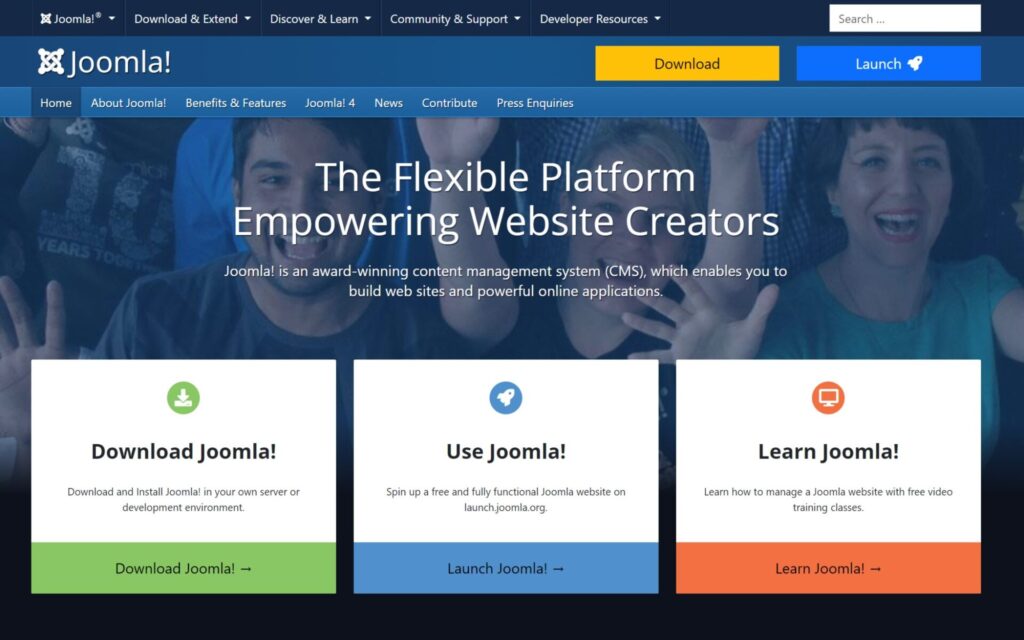
Those just entering the web development world often come across the CMS abbreviation. What is it?

CMS is a website content management system. However, in some cases, the last letter is interpreted as software, but the essence of the matter remains the same.
Imagine website development is the foundation of a house, and then CMS is our smart home doing exactly what we say.

Let’s go back to twenty years ago to clarify the meaning of CMS. If you look at the Internet of that time, you will see that it was represented predominantly by websites consisting of ordinary HTML pages.

Of course, it is alright since even today, we can find small HTML-based websites, but such websites have some problems mainly connected with the lack of dynamics. For example, users can not leave comments or register. Besides, only those who know HTML and CSS can add new materials to update the website content.
Over time, the Internet and the amount of materials published online have developed significantly. As a result, it was necessary to introduce the web development tool, allowing their installation and customization by users with poor programming knowledge and skills.
While the website design is rarely changed, its content can be managed every day and even every hour. That is why CMS uses the so-called templates representing blank pages based on the website’s design, so the user needs only to add the necessary information. To do it, the user needs to use a special editor very similar to the usual text editors that are easy to manage.
If you open an analytical web development portal, you will see that today, there are almost one thousand CMSs that are conditionally divided into paid and free types. Both of them have their pros and cons. However, paid CMSs boast high reliability and timely upgrades. In terms of reliability, it means that their developers take responsibility for site security and emerging vulnerability tracking and solving. In turn, free CMSs are less reliable but feature flexible extensibility.
Now let’s take a quick look at the top three free CMS.
CMS Drupal is considered one of the most reliable. It allows you to implement almost anything you want, from blogs and news portals to Internet stores and a small social network. Of course, to realize all this, you will have to dig a little into the code since CMS is quite difficult to understand.

By functionality, Joomla! CMS is almost equal to Drupal but is much easier to use. Therefore, hundreds of thousands of websites are built on Joomla! with numerous extensions and modules to solve almost any problem.

WordPress is considered a blog CMS, but now you can see various websites built on it, including blogs, news sites and catalog online stores thanks to a limitless library of plugins and templates. As a result, it is considered the number one CMS in the world since it is the most accessible and convenient content management system available.

If Hamlet asks “To be or not to be”, most users think about the following choice: custom CMS vs. WordPress. It is not that there is a clear answer, as each of these systems has its advantages and disadvantages, but depending on the purpose of the site can be quickly determined with the choice:
- For all-scale businesses and the implementation of straightforward functionality and design, it is better to choose custom CMS, as they are maximally tailored to the user’s requirements and have no unnecessary options but enhanced reliability and security.
- For blogs and simple social networks, it is better to choose WordPress, as it is not just functional but also has a wide range of plugins and templates to implement a variety of bright and dynamic designs with themes to improve communication on the website and provide the best experience of using each template. However, they lack custom CMS’s security and reliability.
Choosing between custom CMS vs. WordPress, it should be noted that the latter is one of the most popular solutions today, being supported by users worldwide. Its administration is simple and understandable, and content creation, processing and publishing takes minutes. All this and not only makes WordPress an outstanding ready-made CMS that is already ready for use.
Much has been said about CMS, but it is impossible just to develop the website oneself. Of course, almost anyone with the desire and basic knowledge of web development can create a simple website with a dashboard. Still, only some newbies can develop the website with the ability to register and distribute access rights among Internet store users. Thousands of developers work on CMS development and upgrades worldwide, so can one person do their work better, and why? Isn’t it much easier to get a ready-made CMS and customize it a bit?
Most websites are CMS-based on the Internet, but you can hardly track it at first sight because there are no visual differences. However, you can use a special plugin for the browser Wappalyzer to check it.

Well, now you know what CMS is and can see that CMSs are popular among developers and ordinary users concerned about creating their blogs or even online shops quickly without employing other specialists. Moreover, a range of free CMS simplifies and does not affect the system’s reliability. Though they do lack some specific features, the initial ones are still of high importance for those who want to start with their idea and develop it further with professionals. Here at Webcapitan, we have vast experience in web development services provision and are always ready to enhance existing CMS projects or create new ones based on any client’s requirements. So feel free to contact us if needed.




